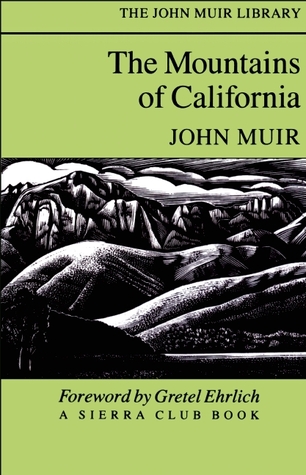By “book” of course I mean electrons arranged in a booklike configuration on your phone. Actual books are far too heavy, and phones have become indispensable for backcountry travel: book, journal, nature guide, map, compass, trail guide, camera, music player – and phone.
The key question is whether you want comfort or challenge in your reading.
The former is better if you just want something to lull you to sleep after a long day on the trail. In this mode you can do no better than Patrick O’Brien’s Aubrey-Maturin series. Called the greatest historical novel ever by Lewis Lapham, it comprises 20 individual books of some of the most fluent prose extant in the English language. It works on the level of sea stories in the British Navy during the Napoleonic Wars, but ultimately is about the nature of friendship (male friendship in particular) and the ordering of society.

My top pick for a nature-oriented book is Muir’s Mountains of California.

Yes, the prose can be a bit overwrought. But the combination of Muir’s passion and the exactitude and depth of his observation are an irresistible combination. The chapters on the water ouzel and the Douglas squirrel are sheer joy.
If you want something more challenging – something to occupy your thoughts during long solitary walks – then here are a few that I have read on recent treks:
Emily Wilson’s terrific translation of the Odyssey (5-day loop through Organ Pipe Cactus NM)
The Better Angels of Our Nature, Steven Pinker (Arizona Trail)
The Vital Question, Nick Lane (Pacific Crest Trail)
I’ve tried tackling Joyce and Dostoyevsky a few times and failed miserably, so they are off my list. Melville is always good, if a bit creepy. Tolkein could work, but I read all those books aloud to my daughters and feel pretty well done with them. I tried Harry Potter and the Game of Thrones books. Both make engaging movies but are utter tripe in print.
